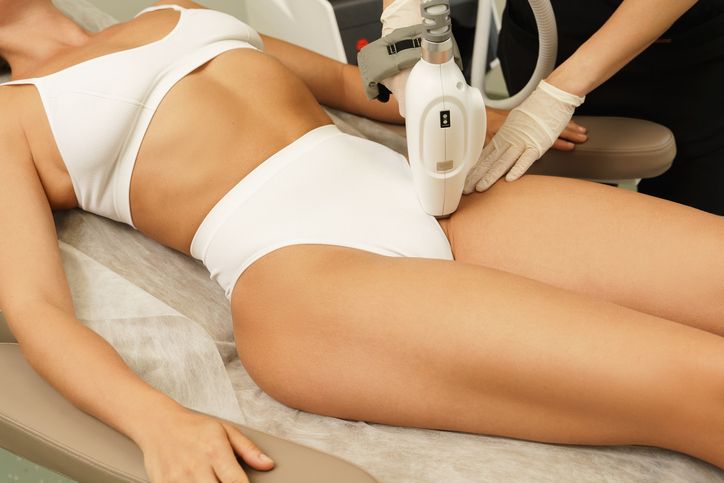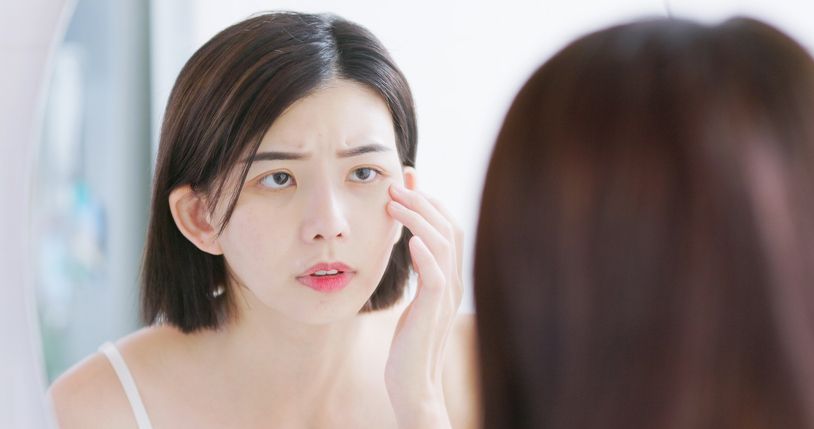- Home
- Trend
- Weight Loss Strategies
- Acne Tips
- Hair Health Information
- Blemish Removal Tips
- Acne Scar Removal Tips
- Muscle Building Techniques
- Intimate Care Tips
- Postpartum Intimate Care
- Eye Bags Wiki
- Tips for Face Slimming
- Secret of Permanent Hair Removal
- Breast Enlargement Tips
- Cure to Snoring
- Marionette Lines
- Skin-Tightening Secrets

免費體驗
S6 Body Sculpting Treatment
1 Minute Self-Registration
Date should not be before minimal date
Chances are you know someone who is trying to lose weight. In fact, you might be the one who's hoping to shred some pounds! To many, weight loss is a long and hideous task. There are so many alleged weight loss methods, such as keto diet, low-carb diet, plant-based diet, high-protein diet, carnivore diet and intermittent fasting. However, these diets give unreliable results that fluctuate from individual to individual. At times, finding a healthy diet for weight loss that works for you can feel like stumbling in the dark! In fact, all weight loss diets aim to lower your calorie intake. Calorie is the base of weight gain and loss. By learning the number of calories you need, how many calories you should cut, the way to count calories, and ways to reduce calorie intake, you can lose weight with ease no matter the diets!
1
What are calories?
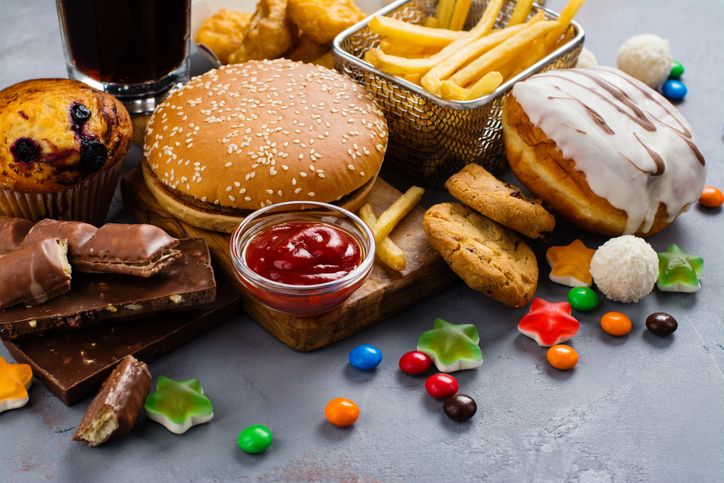
Your body is like a vehicle, converting fuel into energy to function. Foods are your fuels in which your body converts into calories, which are units of bodily energy.
Just as distances and liquid volume are measured by units (e.g. km, m, cm, l, ml, cup), calories are measured by cal or kcal. 1 cal equals 1 kcal—both meaning 1 unit of calorie.
Another commonly used measuring unit for calorie is kJ. 1 kcal equals 4.184 kJ.
To let you get a hang of how much is a calorie, here are some common food items with their estimated number of calories:
Food Item
Calorie content (kcal) per serving
Broccoli
34 per 100g
Boiled egg, large-sized
80 each (60g)
Skimmed milk
90 per 250ml
Apple, medium-sized
104 each (190g)
White bread
110 per slice (39g)
Chicken breast, boneless, skinless, baked
155 per 100g
Whole milk
160 per 250ml
French fries
320 per medium-sized serving (115g)
White rice, cooked
395 per bowl (300g)
Double cheeseburger
450 each (165g)
2
How many calories do I need daily?
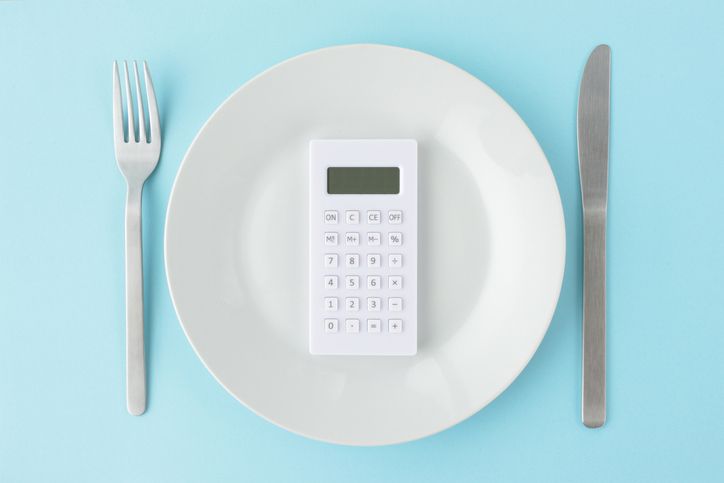
Total Daily Energy Expenditure (TDEE) is the estimated number of calories you need on an average day.
TDEE is not to be confused with basal metabolic rate (BMR), which is the least amount of daily calorie intake you need for basic bodily functions.
Generally, the TDEE for an average adult woman is about 1500 to 2500 kcal, while that for an average adult man is about 2000 to 3000 kcal.
Your height also matters. The taller you are, the longer and larger your muscles, the higher the number of calories needed.
Age and physical activity also affect how many calories you need. your metabolism slows down as you age, thus reducing the number of calorie needs. In contrast, the more active you are, the more calories are burned daily, thus the higher the number of calories your body needs to maintain weight.
3
How does TDEE affect my weight?
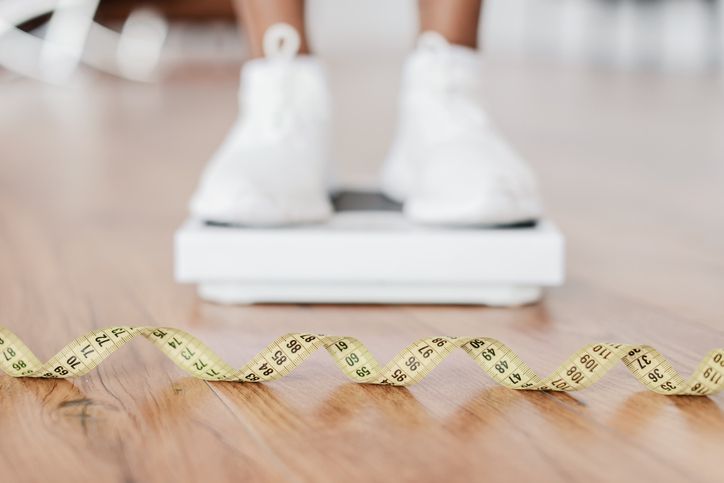
If you eat the TDEE-equivalent number of calories a day (Calorie Intake - Calorie Output = 0), you will maintain weight for that day.
Your body is like a battery: while you need calories for functioning, the extra calories which are not used will be converted into fat for storage.
Calorie surplus is when you consume more calories than your TDEE (Calorie Intake - Calorie Output > 0). You should consume more calories to create a calorie surplus if you want to gain weight.
In contrast, a calorie deficit occurs when you consume fewer calories than your TDEE (Calorie Intake - Calorie Output < 0). During a calorie deficit, your body burns body fat to make up for the needed calories, resulting in body weight loss.
4
Weight loss calculator and calorie counter
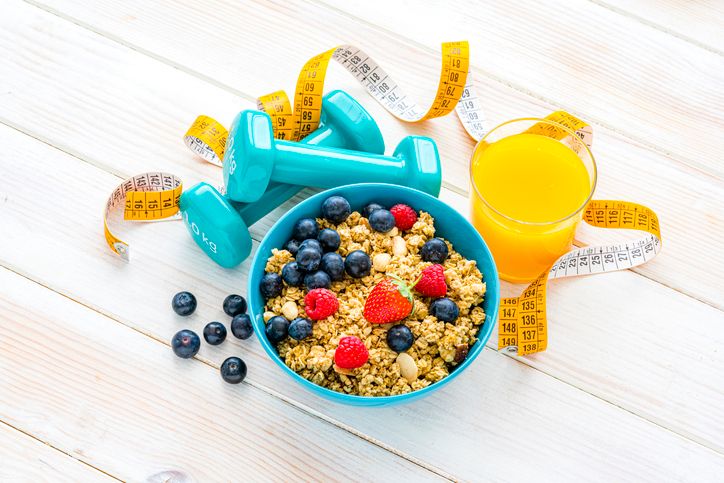
A consistent calorie deficit is effective in predicting weight loss. Therefore, it is necessary to create a calorie deficit for sustainable weight loss.
Still, just how many calories do you need to lose weight? A calorie deficit calculator takes your age, sex, current weight, height and daily physical activity level into consideration, telling you your TDEE, basal metabolic rate, calorie deficit amount, and the number of calories needed for healthy weight loss. Here, you can pick a calorie deficit calculator for counting your calorie deficit:
• Calculator.net • Healthline • Omni calorie calculator
After using a calorie deficit calculator to determine your TDEE, calorie deficit and new daily calorie intake, you will need to start counting calories to lose weight. Calorie counting can be troublesome. As it requires you to plan your meals and mark down the calorie of each food item you eat.
Still, calorie counting allows you to monitor exactly how many calories you eat to lose weight, which is essential for maintaining a calorie deficit. Here are some popular calorie tracking apps for calorie deficit:
• Myfitnesspal • MyNetDiary • Noom • Calory

免費體驗
S6 Body Sculpting Treatment
1 Minute Self-Registration
Date should not be before minimal date
5
The less calories I eat, the better?
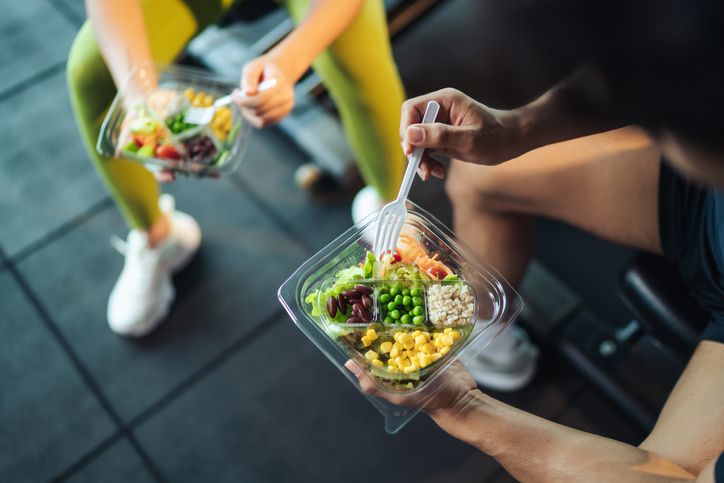
You should not eat less than 1200 kcal per day, which is the minimum daily calorie amount for supporting an adult woman’s energy needs (1500 kcal for men).
It can be risky to eat less than 1200 kcal per day or cut too many calories (over 500 kcal daily calorie deficit, or over 3500 weekly calorie deficit).
1. Weight loss plateau and rebound weight gain
When you eat too few calories for both your current weight, you create a drastically large calorie deficit. You will be overjoyed by the rapid weight loss in the beginning. However, the weight loss progress will gradually comes to a halt—this is called a weight loss plateau.
Weight loss plateau occurs because your body thinks you can’t get enough food. Your body desperately clutches onto the remaining calories (usually body fat) during calorie deficit—by slowing down metabolism and reducing calorie output. This affects weight loss.
2. Difficult weight loss
Eating fewer calories and staying in a calorie deficit can leave you extra hungry and fatigued. You will find yourself unable to pay attention to things other than your empty stomach. Eventually, you will cave in and binge-eat a large quantity of food, which doesn't help you lose weight.
Ironically, your starved stomach will crave refined carbohydrates, sugary treats, processed foods, fried snacks and oily dishes the most, as they promise instant high-calorie replenishments for the calorie deficit.
3. Malnutrition
Achieveing a calorie deficit means eating fewer calories, which means cutting nutrients too, which can lead to malnutrition, which damages your metabolic health and results in lasting impacts to your overall health!
1. Muscle loss:
Your muscle mass size (not lean body mass, which includes bones and bodily fluid) reduces due to calorie deficit-induced low protein intake, making you too weak for day-to-day activities (i.e. running, carrying groceries, cleaning, walking). You will also get sick easier and need more time to recover from illnesses.
2. Hair loss:
You might experience hair thinning and hair loss due to calorie deficit-induce decreases in vitamins, iron, biotin and protein intakes. You will also see slowed down hair growth, and dull and brittle hair quality.
3. Anemia:
Anemia is a condition in which there is a low concentration of red blood cells in your blood. Deficiency in vitamin B and iron from an extreme calorie deficit can result in anemia. Common symptoms include fatigues, headaches, dizziness, poor attention, brittle nails, pale skin, irritability and more.
4. Infertility:
Calorie deficit-induced carbohydrates, protein, calcium, iron, magnesium and vitamin D can disrupt hormonal releases, which delays menstruation and ends ovulation, resulting in long-term infertility.
6
Problems with calorie counting
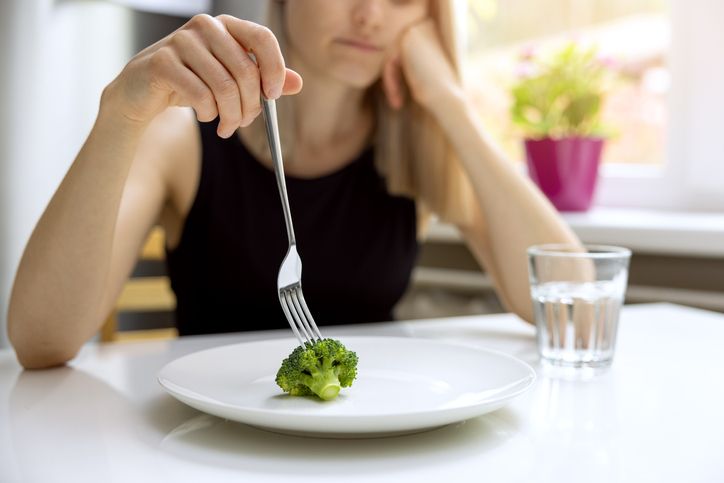
Besides the health complications associated with an overly-low calorie diet, the act of tracking calories can also be problematic!
1. Inconvenient
Weight management via calorie counting is very time-consuming. You will need to mark down the portion and respective calorie of all the food which passes your lips.
If you are a busybody who doesn't have time to prepare your own meals, you will find it a great hindrance to estimate the calories of your takeouts and quick snacks.
2. Dampers social life
Social events often include high-calorie foods and snacks. You don’t want to be the odd friend who takes out a calorie calculator and a food scale in the middle of the party to record each slice of pizza and chips.
In the long term, a lot of dieters will find themselves avoiding social events in order to eat fewer calories, resulting in worsened social life quality.
3. Unsustainable lifestyle habits
Same as exercising and quitting smoke, calorie counting is a long-term lifestyle change. Relapsing from old eating habits and removing calorie deficit, and you will see rebound fat gain very quickly!
4. Psychological stress and anxiety
You might develop food obsession. Food obsession is when you can’t stop yourself from thinking or planning your meals and achieving a calorie deficit. You might also panic over eating some “bad” foods (i.e. white breads, fries, fried rice).
As you continue counting calories, you will find yourself often anxious and shameful over exceeding calorie limit. This stress not only takes away the joy form enjoying foods, but is also a sure way to developing eating disorders
5. Eating disorder
Calorie counting often leads to food obsession and disordered eating behaviors, such as extreme fasting, binge eating, avoiding certain types of food (i.e. rice and noodles, full-fat milk, cooking oils), trying to vomit out foods (purging), and using laxatives.
People with disordered eating behaviors are at great risk of developing eating disorders (EDs), most commonly anorexia nervosa and bulimia nervosa. These eating disorders can severely impact the patients' daily and social lives, damage their body image and confidence, and even put the patients' bodily health and safety in danger.
7
Calorie deficit: tips
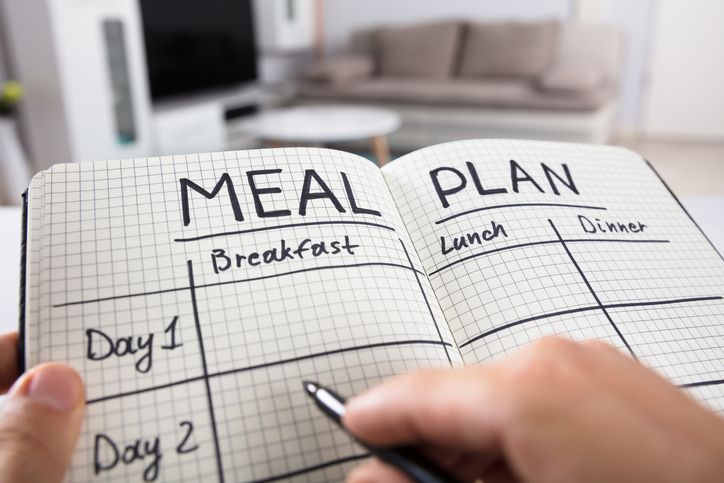
Healthy diet is necessary for sustainable weight loss. Here are 9 best tips on easily achieving calorie deficit for healthy weight loss, safely and effectively, registered dietitian-approved!
1. Plan Your meals
It is easy to eat more than your daily calories if you don’t plan your meal. For example, having a huge lunch leaves a very small calorie quota for your dinner, making it much easier to overeat at night. Besides planning what to eat for the day, you can also do meal prepping.
2. Limit sugar and processed food intake
Sugar is extremely high-calorie. Therefore, you can opt for sugar-free drinks. You should also avoid packaged dressings and seasonings and opt for home-made sauces and simply salt and pepper.
Processed foods also have high-calorie concentrations. This is because these foods are made with an excessive amount of oil, fat and additional seasonings. You should reduce processed food intake, and instead opt for their fresher counterparts.
3. Don’t drink your calories
You shouldn’t drink your calories because liquid foods, such as soups, boxed drinks, protein shakes and meal supplements, are not filling AND high-calorie, probing you to eat again afterwards.
4. High-protein intake
You should eat a large amount of protein to prevent undesired weight loss side effects such as hair loss, low bone density and muscle loss.
5. Eat less refined carbohydrate
Refined carbs contain a lot of sugar and have their grainy, fibrous parts removed for a soft and fluffy texture (i.e. white bread, pasta, white rice). The removed fibers also contain vitamins, leaving refined carbs with just calories and no nutrients.
The large amount of sugar in refined carbs enters the bloodstream instantly to spike up the blood sugar level. However, if you fail to use up all the blood sugar (i.e. you sit in the office instead of going jogging), the sugars get converted into fat, resulting in fat gain!
You should switch refined carbs for their unrefined counterparts, such as whole grain bread, quinoa and whole-grain pasta.
6. Healthy fat intake
Eating a moderate amount of healthy fat can help you feel full quickly, preventing you from overeating.
Consuming healthy fat also triggers your body’s fat-burning mechanism, which helps boost your fat loss!
Examples of healthy fat include vegetable oils, oily fish, nuts, egg yolks, olives and avocados.
7. Enjoy a small amount of high-calorie foods
Overly oppressing your craving for fast-foods, refined-carbs, and deserts will result in future binge-eating episodes, followed by feelings of guilt and even more-restrictive dieting. This vicious cycle is damaging to your weight loss progress as well as physical and mental health.
Instead, you should allow yourself the occasional indulgence. If you want chocolate cake? Have some! Be aware that portion is key: a slice instead of a whole cake will not cause much damage to your weight loss.
Moreover, you should practice mindful eating: take small, slow bites and focus on the cake’s smell, texture and flavor. Notice the sensations and feelings you have, and the way it slowly fills your stomach.
Study shows that people who practice mindful eating report more satisfaction from the foods and are less likely to overeat.
8. Eat more fibers
Fibers from vegetables, fruits and supplements keeps your stomach feeling full, thereby preventing overeating. Fibers can also aid your bowel movement, reducing edema-induced bloating.
9. Stay hydrated
Drinking water can do wonders to your body, including losing weight!
You can speed up your blood circulation and metabolism by drinking enough water, which helps with increasing calorie burn!
Water is also filling—study shows drinking 375-500 ml of water before a meal helps prevent adults from overeating.
8
S6 Body Sculpting Treatment
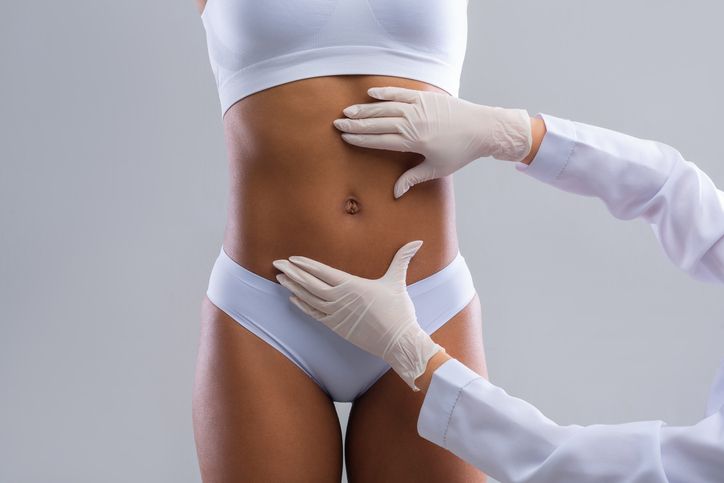
Calorie countering can be complicated, troublesome and even dangerous! Instead, why not burn excess fat safely, quickly and effectively?
Perfect Medical’s S6 Body Sculpting Treatment utilizes the advanced bio-laser technology to target your localized fat areas. The gentle yet powerful laser energy penetrates the surface skin tissues to reach the deep-seated fat. Once there, the laser energy breaks down excess fat cells, which your lymphatic system will expel naturally!
The S6 Body Sculpting Treatment also employs vacuum suction technology to aid your body for a smoother lymphatic drainage.
Since the amount of fat cells in an adult body is fixed, the broken down fat cells will not regenerate. You can achieve long-term fat loss with no rebound!
This treatment is non-invasive, meaning no incision, injection, medication and anesthetic. There will be no risk of potential health-complication.
You can slim down any stubborn fat area with just 10 sessions of the S6 Body Sculpting Treatment. No recovery period is needed after each session.
Get your free trial now to regain sensual body curves and confidence!
S6 Body Sculpting Treatment

免費體驗
S6 Body Sculpting Treatment
1 Minute Self-Registration
Date should not be before minimal date
FAQ

How many calories do I have to cut daily to lose weight?
Many fitness websites will recommend you to create a calorie deficit 500 kcal from your daily calorie intake. Bear in mind that you can achieve this 500 kcal deficit by combining dieting and exercising. Generally, it is recommended to eat 250 kcal less and burn 250 kcal via physical activity. You can measure how many calories you need daily by using a calorie calculator.
Should I adopt a 1200 kcal diet to lose weight?
1200 kcal is considered to be the minimal daily calories for an adult woman. The 1200 kcal diet is for women who are short, with a slow metabolism, and have little physical activity. Statistically, a 1200 kcal diet is considered too little for women who do not fit all 3 of the aforementioned criteria. Normal adult men will need at the very least 1500 kcal to function in daily lives. You should use a calorie calculator, which takes into account datas, such as your current weight and physical activity, to measure your calorie deficit for sustainable weight loss. You should have a balanced diet that can fuel your body's needs.
What are the risks of having an overly low-calorie diet for losing weight?
Eating not enough calories can cause malnutrition, which contributes to health issues such as hair loss, muscle loss and infertility. Also, an overly-restrictive diet can actually make weight loss difficult, as well as inducing weight loss plateau and fat gain rebound. You should achieve healthy weight loss goals wth less extreme dietng.
How can the S6 Body Sculpting Treatment help me lose weight?
S6 Body Sculpting Treatment emits bio-laser energy at the localized fat area. The bio-laser energy penetrates the skin tissues to break down deep-seated excess fat cells. The treatment also uses vacuum suction technology to speed up the body’s lymphatic drainage of the broken down fat cells. The targeted body parts will become thinner in no time!
What are the advantages of the S6 Body Sculpting Treatment?
This treatment uses gentle yet potent bio-laser energy. The laser energy breaks down fat cells non-invasively and safely. The broken down fat cells will not regenerate, ensuring long-term fat loss with no rebound! This treatment is efficient and pain-free. No recovery period is necessary.






